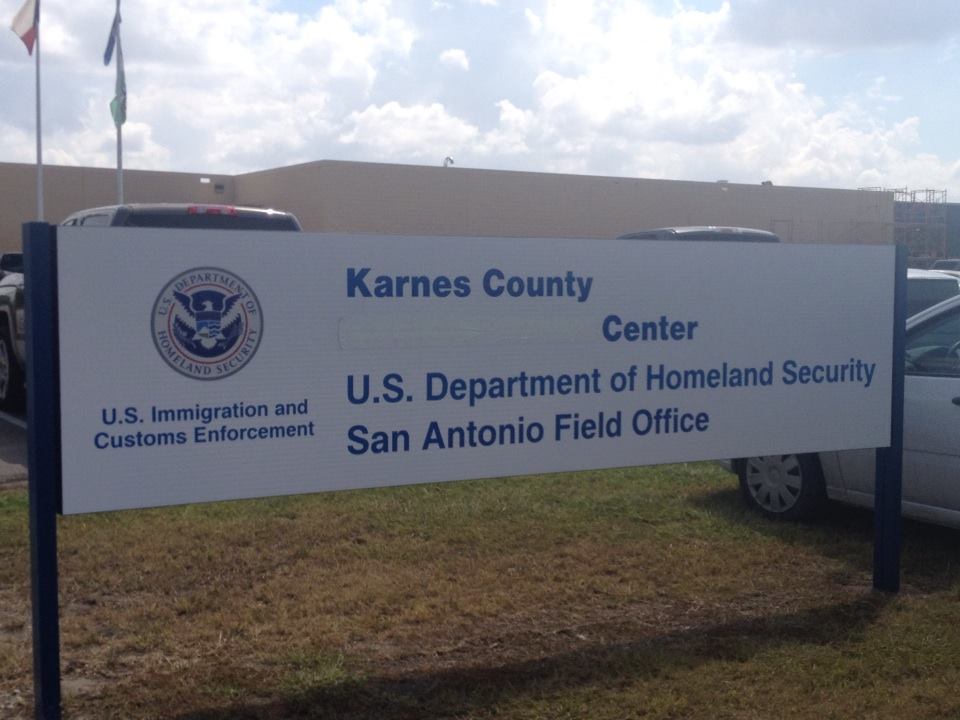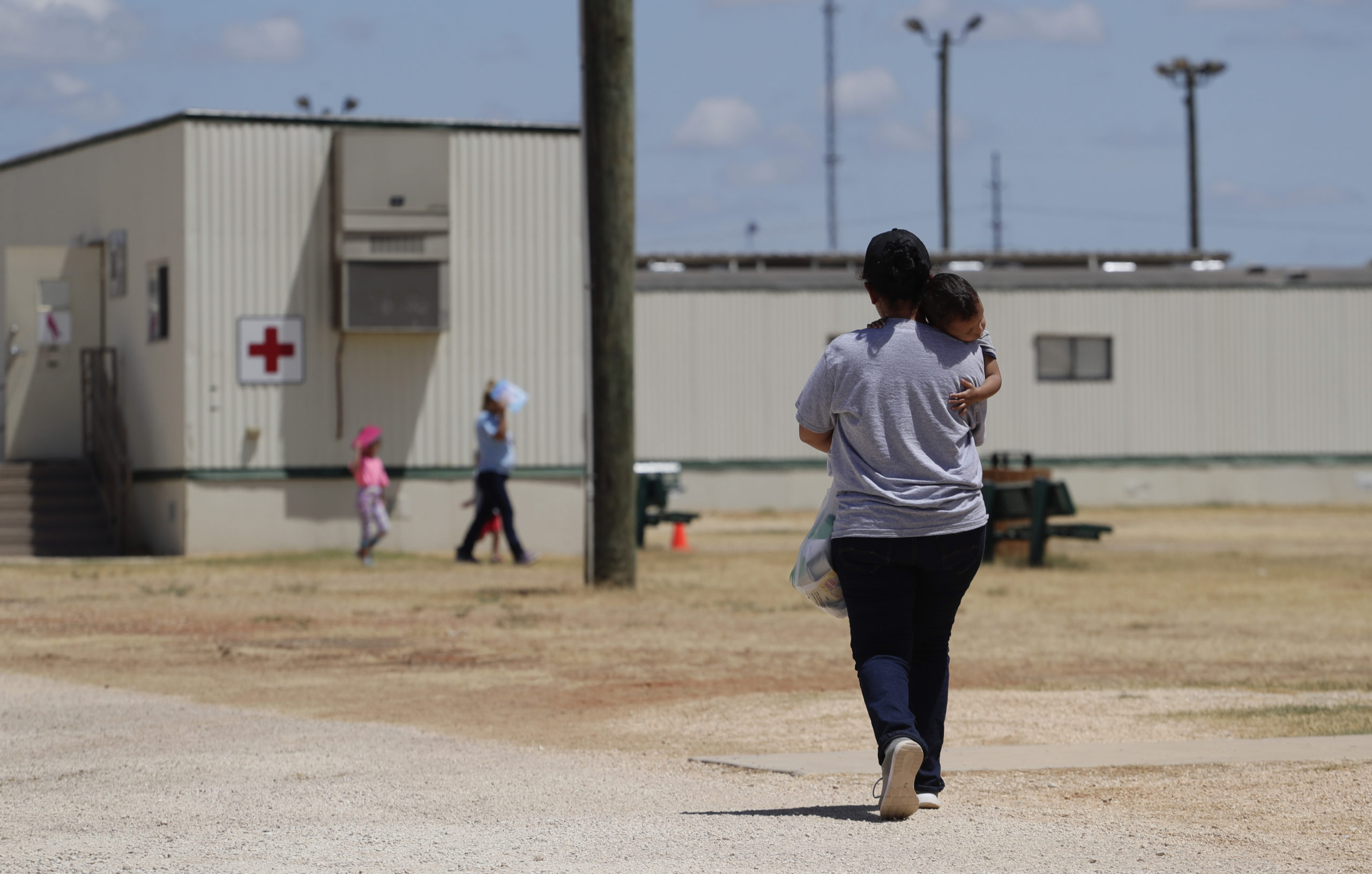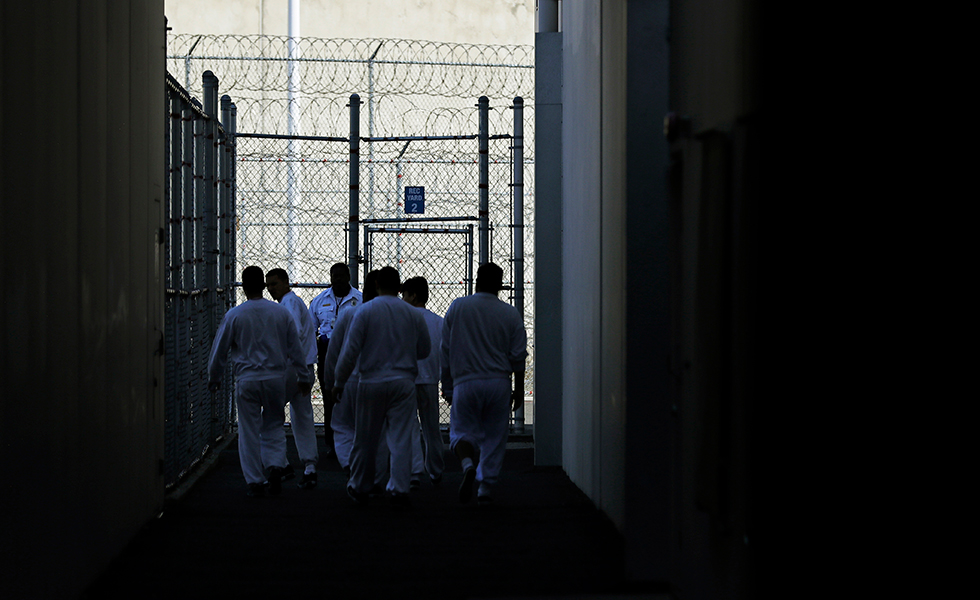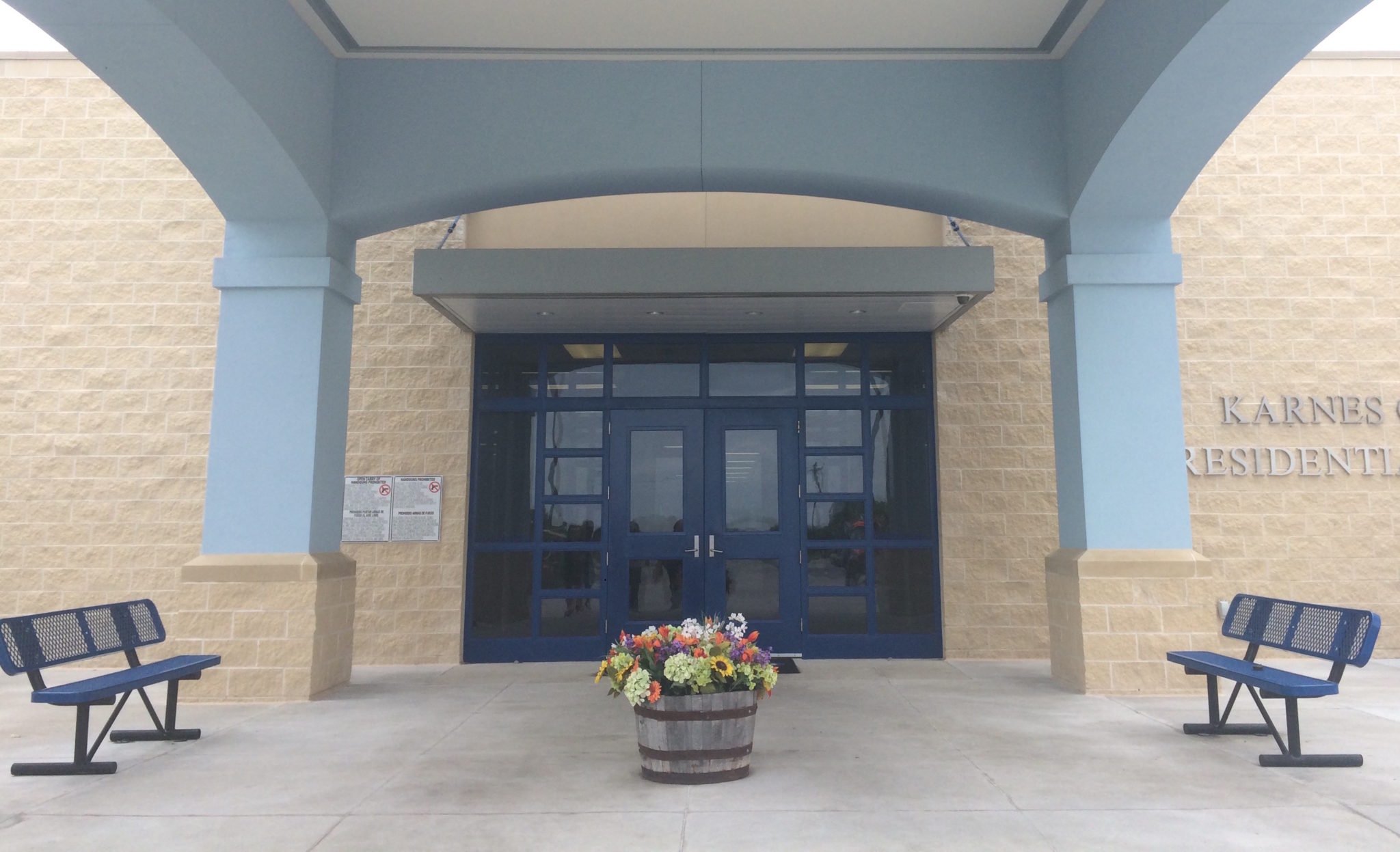
Paralegal Blocked from Karnes Detention Center After Observer Story

First of all: No, she does not regret writing it.
“It” being “Seeking Asylum in Karnes City,” which ran in the February issue of the Observer. The 4,500-word story reported Victoria Rossi’s firsthand experience as a paralegal assisting Austin immigration attorney Virginia Raymond inside the Karnes County Residential Center in Karnes City, 50 miles southeast of San Antonio. When the detention center opened in 2012 it was hailed by the Obama administration as a model for a more humane, less penal facility for holding immigrants.
The facility has 532 beds for women and children awaiting processing of asylum claims or immigration cases. It’s operated by the private prison company GEO Group under a contract with U.S. Immigration and Customs Enforcement (ICE). The residential center—originally named a “detention” center—is rarely the subject of firsthand reporting, and access is tightly controlled. In January, for instance, ICE denied the Observer‘s request to photograph at the facility in conjunction with Rossi’s story.
Now, possibly as a result of that story, Rossi, a former Observer intern, has herself been denied further access to Karnes.
As befits any attempted navigation of the overlapping bureaucracies of a non-transparent public-private governmental entity, the story is of course convoluted.
There is a process for applying for access to Karnes, and in this case the process is managed by Raymond, who handles a pro bono load of immigration cases related to Karnes residents, and who employs Rossi as a part-time paralegal. In October, Raymond submitted a security clearance application for Rossi in her capacity as a paralegal. In response, ICE approved a categorically distinct clearance for Rossi as an interpreter—an apparent clerical error on ICE’s part that neither Raymond nor Rossi noticed at the time.
Once that clearance was granted, Rossi, per standard protocol, was further required to fax to Karnes intent-to-visit notices 24 hours in advance of her visits to the facility. Those notices included a copy of ICE’s original clearance, and specified the time of Rossi’s visits and the names of the clients she planned to speak with.
“It’s straight-up interference with access to counsel. It’s an intimidation tactic.”
On Jan. 15, having faxed her intent-to-visit notice as usual, Rossi arrived at the facility to face officers—Rossi isn’t certain whether they were employed by ICE or by GEO—questioning the purpose of her visit. The Observer had recently requested access to photograph at Karnes, making staff aware that Rossi was working on a story. The officers examined Rossi’s ICE-granted permission and determined that it allowed her access not as a paralegal, but only as an interpreter—a category of access that Raymond had never applied for and a job at which Rossi had never been employed. Rossi was denied entry and told that she would have to reapply for a new security clearance as a paralegal.
That re-application was complicated and delayed by the fact that Rossi had to first reapply for and receive a lost passport, but once she had that document in hand—along with the also-required driver’s license and Social Security number—Raymond put the security-clearance application in process.
On Monday, March 23, Rossi got the news that her re-application had been denied. The denial letter, dated March 19, gave no reason. But neither Raymond nor Rossi has much doubt about the why.
“I’m hoping it’s just a technical error, but the timing of it, I worry that it’s reactive to the article,” Rossi says.
Raymond is less circumspect: “It’s straight-up interference with access to counsel. It’s an intimidation tactic.”
Per the letter’s recommendation, Raymond got on the phone with Hilario Leal, ICE’s supervisory deportation and detention officer at Karnes, who disclaimed any knowledge of the decision and said he’d have to look into it. Raymond says that Leal later called back and explained to Raymond and Rossi that Rossi was being denied clearance to visit Karnes as a paralegal because she had previously visited Karnes as a paralegal while having been approved only as an interpreter.
As recently as Friday, March 20, Rossi visited Karnes with Raymond and was allowed access. In retrospect, Rossi isn’t sure why she was let in.
Leal did not immediately return a phone call seeking comment.
It remains unclear whether Rossi may still access Karnes as an interpreter for Raymond, though, again, that’s never been the purpose, stated or otherwise, of Rossi’s visits. Regardless, she apparently is not allowed to visit Karnes unaccompanied, which by itself constitutes a major impediment to Raymond’s work.
“It’s very damaging,” Raymond says. “I can’t do this by myself. I’m a solo practitioner. One of the two main reasons why I hired [Rossi] is she’s an outstanding interviewer. So [now] she can’t do that. It’s a lot of work to prepare asylum applications, and a lot of it has to be done at Karnes.”
Raymond is clear that Rossi’s job is not at risk, but she’s equally clear that the ICE decision will have a negative effect.
“It hurts the clients,” she says. “It hurts the children and women refugees at Karnes when ICE and GEO throw up additional roadblocks to legal representation.”
Raymond is appealing the decision up the dual chains of command at Karnes—GEO and ICE—and spreading the word among the legal community.
“We are going to fight this thing,” she says. “And I feel confident that when it gets to someone high enough, they’ll realize it’s not right.”
Rossi says she’s experienced a supportive response from activists and lawyers, but she remains “very worried that after some of the sense of outrage has died down, it’s going to become a huge burden on Virginia.”
That aside, she has no regrets about writing about her experience, and about the view afforded her by access, however fleeting, to the world of immigrant detention.
“From what I can tell,” she says, “it’s been very difficult for journalists to get access to these new family detention centers they’re opening up, and I think it’s important for anyone to write about what they see inside there.”
To that point, she notes that some residents of the Karnes facility have begun writing their own stories, some of which are available at endfamilydetention.com.
For instance, a recent “Statement by 20 Families Held at the Karnes Family Prison in Texas” reads, in part:
Please help us, we don’t want to return to that life of violence in our countries, we want to live in peace with our children. We seek refuge in this country because we believe that this country has laws that are upheld and that violence doesn’t exist in the same way it does in our countries.
Raymond points out that “refugees who have legal assistance are far more likely to persuade judges to grant them asylum,” and says she’s “disturbed that ICE is impeding our provision of legal services to these women.
“Whether ICE is retaliating against Victoria for her writing, or arbitrarily preventing her from coming as a paralegal, the people who are really hurt by this are the refugee families.”


